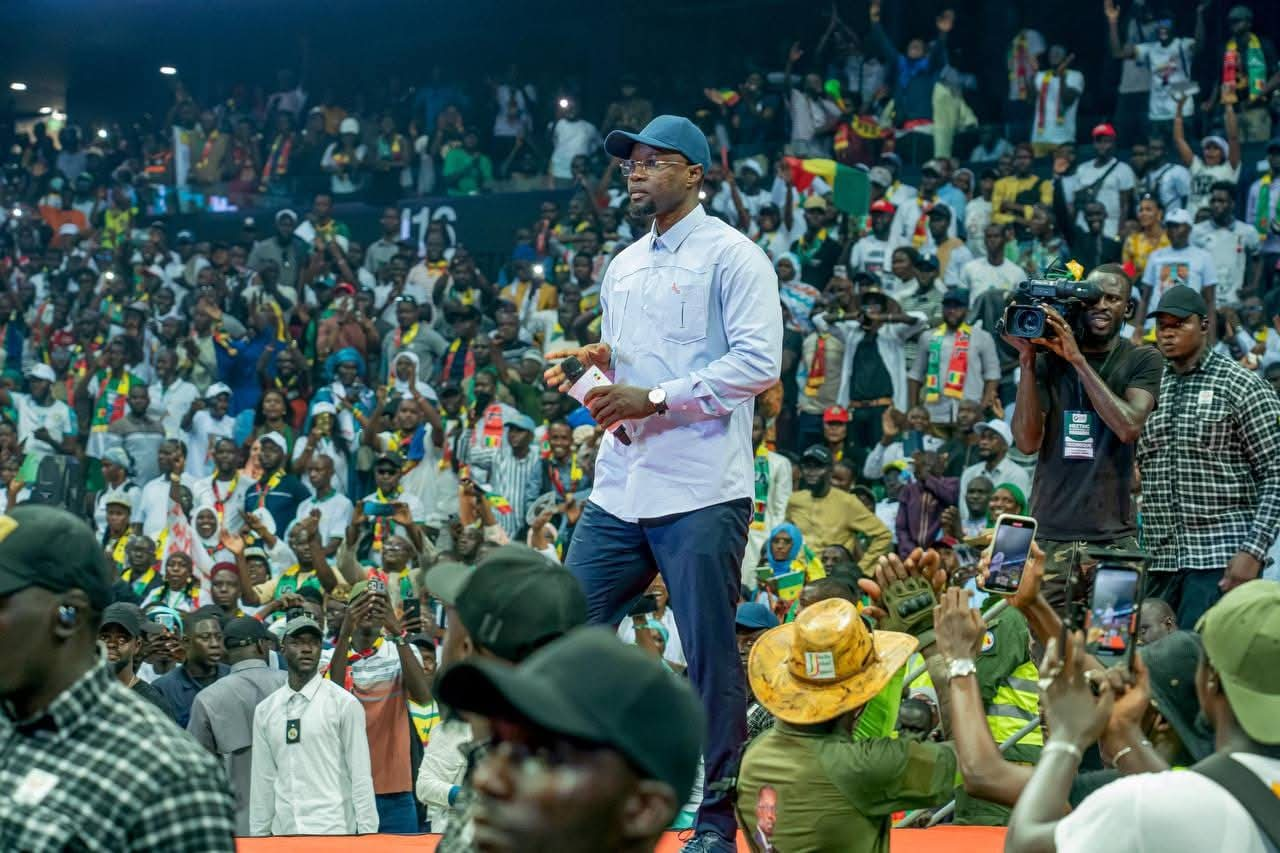
Senegal’s Prime Minister Ousmane Sonko has taken a bold step to consolidate his authority, both within his party and across the national political stage, by formally launching the National Council of his party, Pastef-Les Patriotes.
Far from a ceremonial gathering, the event marked a decisive moment in Sonko’s political narrative — one that underscored his central role in shaping Senegal’s current leadership.
“This is not about reaffirming my position; it’s about setting the record straight,” Sonko declared during the high-profile event, pushing back against growing internal criticism and external speculation about his legitimacy.
Highlighting his instrumental role in selecting President Bassirou Diomaye Faye as Pastef’s presidential candidate, managing the campaign, and leading the party through legislative elections, Sonko painted a picture of seamless continuity between the rise of Pastef and his own leadership journey.
For those questioning his place in government, his message was clear: “I remain in office as long as the president wishes.”
But the Prime Minister’s address wasn’t confined to affirming authority — it was also a fiery rebuttal to what he termed “false narratives” on the judicial front.
He dismissed claims that he had sought meetings with members of the Magistrates’ Union, accusing some magistrates of being complicit in a justice system used to “manipulate laws to exclude or imprison political rivals.”
“Their sudden sense of justice,” he said, “is not awakening — it is opportunism.”
Turning his critique inward, Sonko also addressed discontent within his own ranks.
He delivered a sharp rebuke to Pastef officials who, in his view, have failed to stand firm during political storms, preferring silence over solidarity.
“It is intolerable,” he said, “that ordinary internet users defend their leaders more passionately than those with political or organizational mandates.”
For Sonko, the current crisis is not a lack of reforms but a lack of decisive governance.
“Authority,” he emphasized, “is what is missing.”
His words seemed to target both political allies and figures from the previous regime still believed to hold influence behind the scenes.
The establishment of the National Council, initially designed to prepare for Pastef’s first national congress later this year, has become a powerful platform to redefine party discipline, reassert loyalty, and signal a political tightening.
It is no longer just a strategic body — it is a new command center.
With calls for unity and unwavering leadership, Sonko is sending a strong signal: the era of internal ambiguity is over.
His leadership, forged through years of resistance and strategic positioning, is not open to renegotiation — and he intends to govern with resolve.



